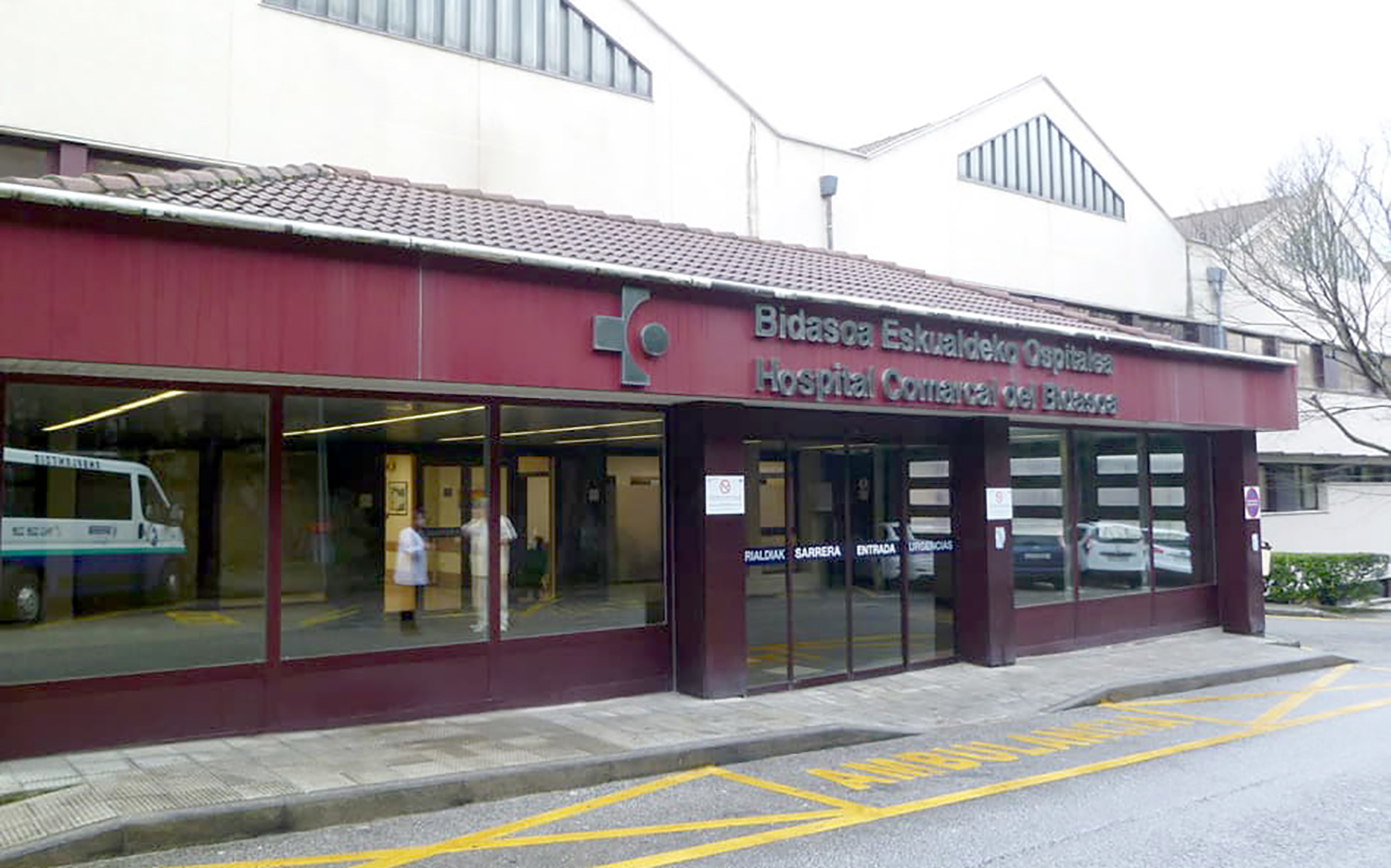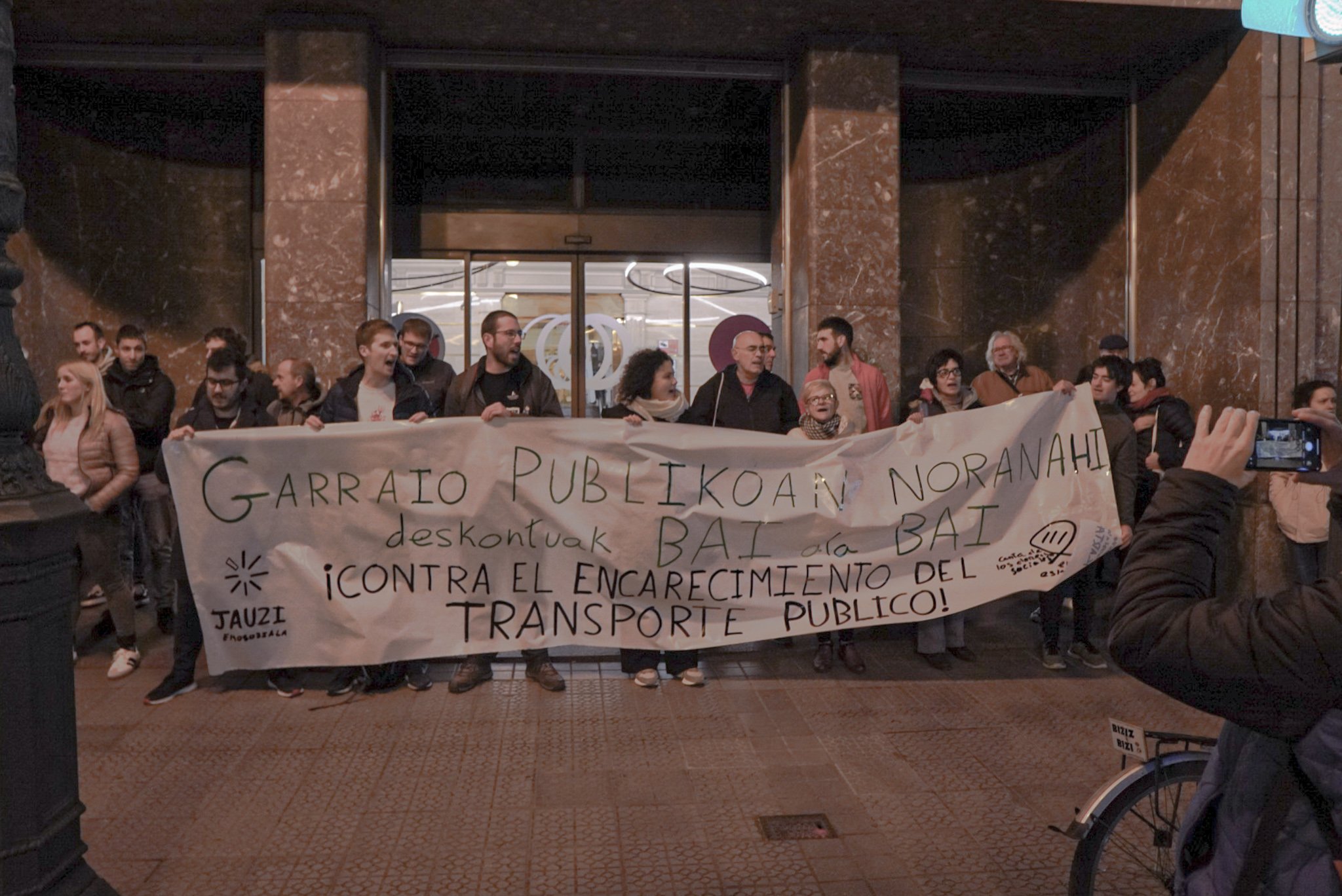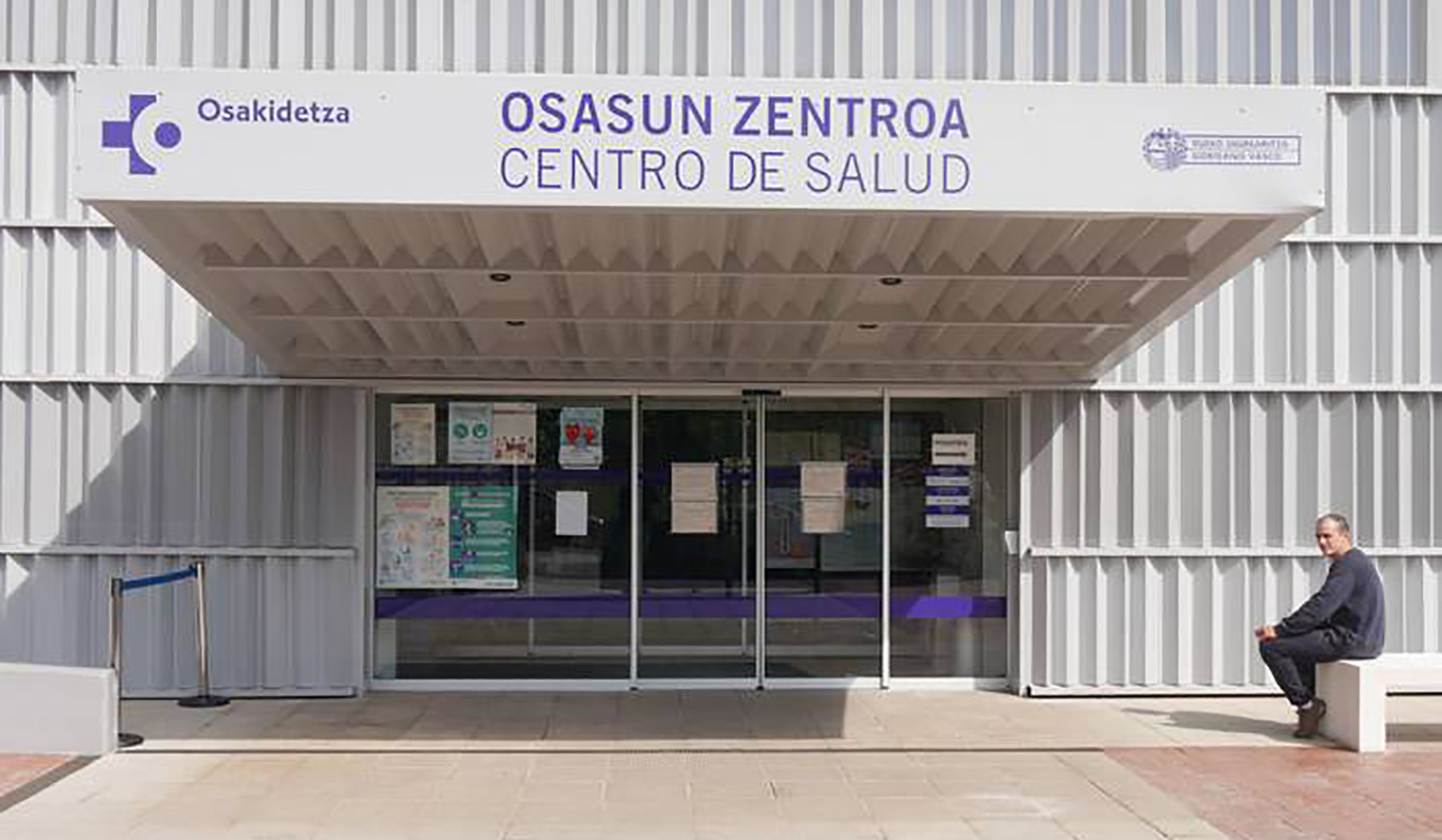The next crisis, ever closer
- The trend of macroeconomic indicators in the CAV has reduced the confidence of families. We've analyzed the collaborative economy that drives capitalism. Argia journalist Lander Arretxea has interviewed the SBI Musica Union.

Conjuncture
The Basque economy is undergoing a slowdown
The Basque Government’s Directorate for Economy and Planning has published the report for the month of November. Among the main innovations are the affirmation of the slowdown in the economy and the general worsening of economic trends.
Analyzing the data of the Gross Domestic Product, it is evident that if we take as a basis the data for the first quarter, the decrease of this magnitude has been noticeable: although at the beginning of the year it was 3.1%, in the third quarter it was 2.6%, half a point less. If we take the point of view of the last three years, we see clearly the end of the growing economic cycle that began in the 2014-2015 academic year, as you can see in the graph.

The direct consequence will be the resumption of the economic crisis and, according to the data, could be on the way to strengthening the downward cycle.
With regard to employment, the report points out that 18,000 jobs have been created in the Basque Autonomous Community in the last year, although since the beginning of the year the trend is decreasing. Forecasts for 2019 point to a slowdown in job creation from a rate of 2% in the last quarter of 2018 to a rate of 1.2% in December 2019, the most serious one. Furthermore, the data do not say anything about the quality of employment.
Following the macroeconomic forecasts for 2019, the table of the report shows the evolution of the different magnitudes. With a blow of the eye, we see clearly what the main trend is: the worsening. The trend is the same for all economic sectors, except for agriculture; the sectors most affected are industry (one-point reduction) and construction. The government's economic stakes will lose strength, as external demand, that is, exports, is going to be very bad and the services sector, which drives growth in these years, is going to weaken. This situation is not unique to the CAV, but is similar to the situation in the euro area.
Forecasts. September 2018. Year-on-year variation rates

Another element that the report analyzes is the confidence of families. According to data from the financial institution Laboral Kutxa, trust has worsened slightly in the third quarter of 2018, as shown in the table. Families believe that employment and the economic situation will continue to improve, but that the hope for this growth has been greatly reduced. All the other elements (the economy of families, the potential for savings, the evolution of prices...) believe that they will worsen.
Confidence of economic operators

If we summarize the report in one sentence, we are leaving the Great Recession and we are in another crisis, with no time to heal the wounds. Can the next crisis be avoided?
Economy of Labor on the radio Villa de Bilbao. Link here.
Structure
Collaborative economy, the last cartridge of the new time
The character of capitalism is absolutely unstable. It has been made clear in the light of the circumstances of the productive and labour relations we have experienced in recent years. Crises are the vital events of the capitalist system. Crises have always focused on low-productivity activities and the elimination of businesses and the reduction of workers’ wages. In this half-century neoliberal we have observed that the “glorious year of capitalism” after the World Wars has not been repeated. We are faced with a new scenario imposed by the reduced rate of profits and the biophysical limit on land, and successful in providing adequate global political responses is the only way to avoid economic and ecological corruption.
Corporate authorities and entrepreneurs from both the Basque Country and Europe have been opposed. Millions of businesses and jobs have been destroyed in the “lost decade” that is about to end. They impose austerity and lower the incomes of workers, they have taken advantage of the new context they call recovery. The labour reforms they have carried out, the reduction of pensions and other social policies and, in general, the reduction of corporate profits, are the measures that the current authorities, with the help of the media that are their slaves, consider appropriate. A misguided path that shows its short-term inadequacy has terrible consequences on the relations of production and work. These conclusions are materialised through new business management models.
The most recent is the so-called “collaborating company”. “The poor work, the middle and rich classes do a professional journey,” reminds us of Irati Mogollon, a researcher on this work reconstruction. As underlined in the book “The Society of Performance”, forensic rights and guarantees of an ever-declining era must temporarily immerse workers who are outsourced or self-employed in a culture of selfish climbing. Blablacar, Uber, Airbnb and Deliveroo are the best known among us, but we are facing a new model of labor relations that is spreading across giant continental platforms around the world.
It is essential to provide a political response to workers through measures that prevent inadequate competition and concrete regulations that establish social guarantees. The legal framework for exploited workers is not right for business and commercial competition to be artificial, and we have to give a collective response to the problem of “weak and indebted entrepreneurs without capital”. We have to apply measures to reduce the playing field to collaborative companies and, in general, to global companies of Amazon, Google, Facebook, etc., which we have infiltrated in the market of digital capitalism and everyday life. It is an unavoidable and short-term obligation, before it is too late to reverse the new behaviors imposed by capitalism.
This has happened in Barcelona, where the City Hall has forced you to deactivate so many illegal apartments offered by Airbnb. The clash between taxi drivers and uber, or the strikes of the home delivery workers of the Deliveroo restaurants, have been the main conflicts that have come to light. The problem goes beyond a few companies, at a time when the market economy deregulates and acquires new ways of being. The editorial and collective Traficantes de Sueños has been studying these transformations for years. For example, in 2003, Bifo said: "Millions of high-skilled workers have agreed to work in conditions of great nervousness in exploitative situations, with very low salaries in addition. Workers represent themselves as private entrepreneurs and have made permanent competitiveness the law of life" (10). The years have passed, and more and more Jeltzal leaders are sending this message through institutional campaigns, both public and private.
The problem is not just the exploitation suffered by these workers. We are facing a process of transformation of an increasingly accelerated society, which is applied, above all, through the new generations. Faced with the impossibility of activating a global fight against capitalism, we are experiencing a reform of capitalism. As Cristina Morini analyzes in another book of Traffickers of Dreams “when short-term, part-time and periodical contracts are generalized (including partnerships without scholarships, internships and follow-up), the relationship and training processes cannot reach the necessary maturity, help to acquire a level of experience, which entails a tendency to reduce social productivity that is key to competitiveness” (35). The wrong path is that of today’s leaders, and as long as we do not take the step of recovering the responsibilities of the business world politically, we will continue to get worse.
Light
SMAC: Union of activists musicians from Catalonia
Is being a musician and a trade unionist incompatible? Aren't they bohemian and individualistic? The Argia journalist, Lander Arretxea, has interviewed the Union of Activists Musicians of Catalonia (SMAC).
These Catalan musicians have joined together to demand basic and unusual conditions, to defend their rights, especially that of being hired. To achieve this, they have been identified as people of the working class and the logical consequence has been the creation of a class union to achieve improvements. The macrofestivities, the rights of authors, the role of public institutions -- they've talked about these elements.
Weekly trade union agenda
- The workers of the Residence of Mayor Loramendi of Erandio continue with the mobilizations they are carrying out. Indefinite strike (ELA, LAB, UGT)
- The waiters of the hotels NH and Barceló Nervión de Bilbao have been on an indefinite strike since November 2. (ELA)
- SATSE has launched a collection of signatures to ensure safe and high-quality health care, bringing a total of 500,000 signatures across the state for the Popular Legislative Initiatives to reach the Congress of Deputies.
- Bizkaibus workers have followed a strike that will last until 29 November if companies do not want to negotiate a collective agreement (UGT, ELA)
- Paros in the residences of Gipuzkoa: five-day strike on 26, 27, 28, 29 and 30. Daily concentrations from 10:30 to 12:00 in the morning and from 17:00 to 18:30 in the afternoon (ELA, ESK) are being held at the headquarters of the major Sanmarkosene.
- Social Initiative Strike for 27-28-29-30 November (UGT, CCOO, STEILAS, LAB, ELA)
- Today, the workers of Garbialdi will concentrate in front of the House of the Provincial Council of Bizkaia at 11:00 in the morning. On Tuesday, the workers of Garbialdi will concentrate in front of the House of the Foral Council of Bizkaia at 11 a.m. (ESK)
- Panda’s workers will be concentrated every Wednesday at the Miribilla Building (Bilbao) from 11:30 a.m. LAB, CNT)
- On 29 November STEILAS will concentrate on the entry of the Bizkaia aretoa in Bilbao, to denounce sexual abuse. The Minister of Education, Cristina Uriarte, today announced that she will request the resignation of her department for her relationship with the exclusionary Alarde.
- On 1 December a major event will be held in Bilbao due to the closure of the company La Naval
- The mediators of the Ubik library in Tabakalera will stop on December 1 in Donostia (On-Going Mediators)
- The stops in Bilbobus will begin on 3 December, St. Thomas Day, and will last until 24 hours.
- Finally, we should also remember the indefinite strike of cleaners and cleaners from police stations and courts in Gipuzkoa, which is taking place daily with concentrations (ELA, LAB, UGT, ESK).
Pazienteek Donostiara joan behar dute arreta jasotzeko. Osasun Bidasoa plataforma herritarrak salatu du itxierak “are gehiago hondatuko” duela eskualdeko osasun publikoa.
PPrekin eta EH Bildurekin negoziazioetan porrot egin ondoren etorri da Ahal Dugurekin adostutako akordioa. Indar politiko honek aitortu duenez, maximalismoak atzean utzi eta errealitateari heldu diote, errenta baxueneko herritarren aldeko akordioa lortuta.












.jpg)










